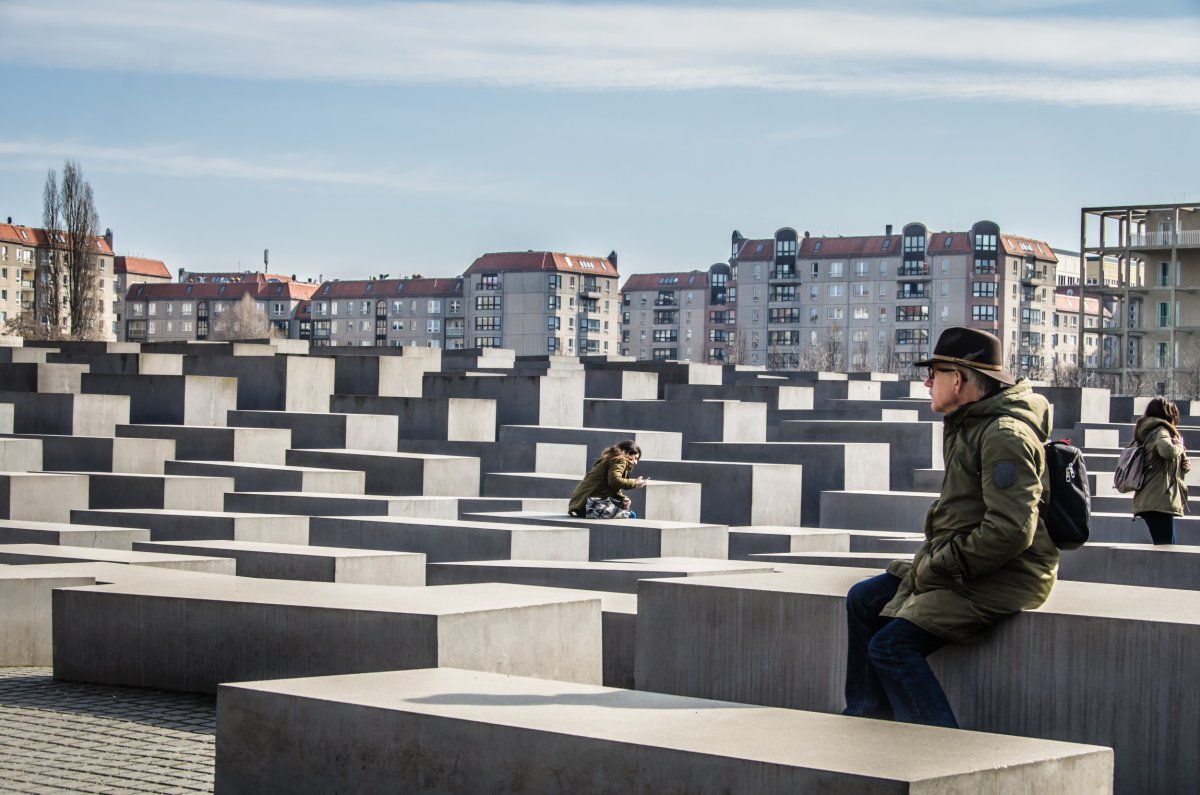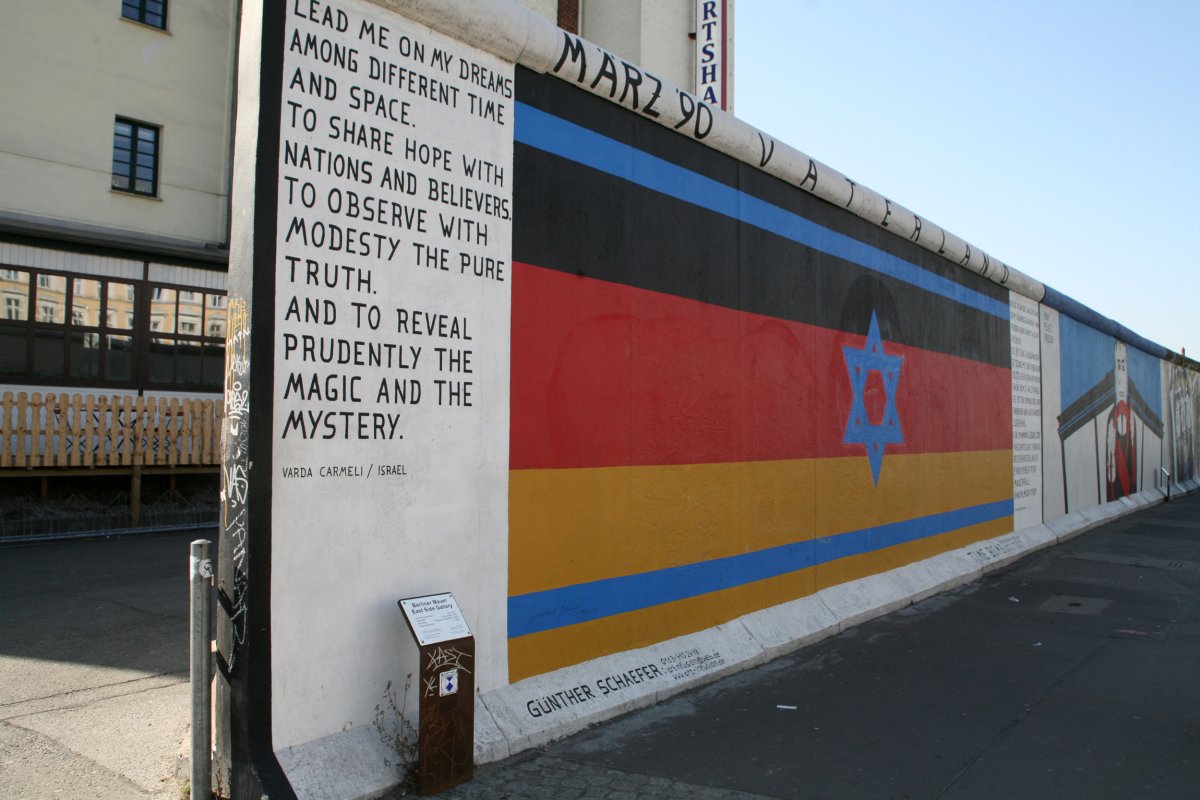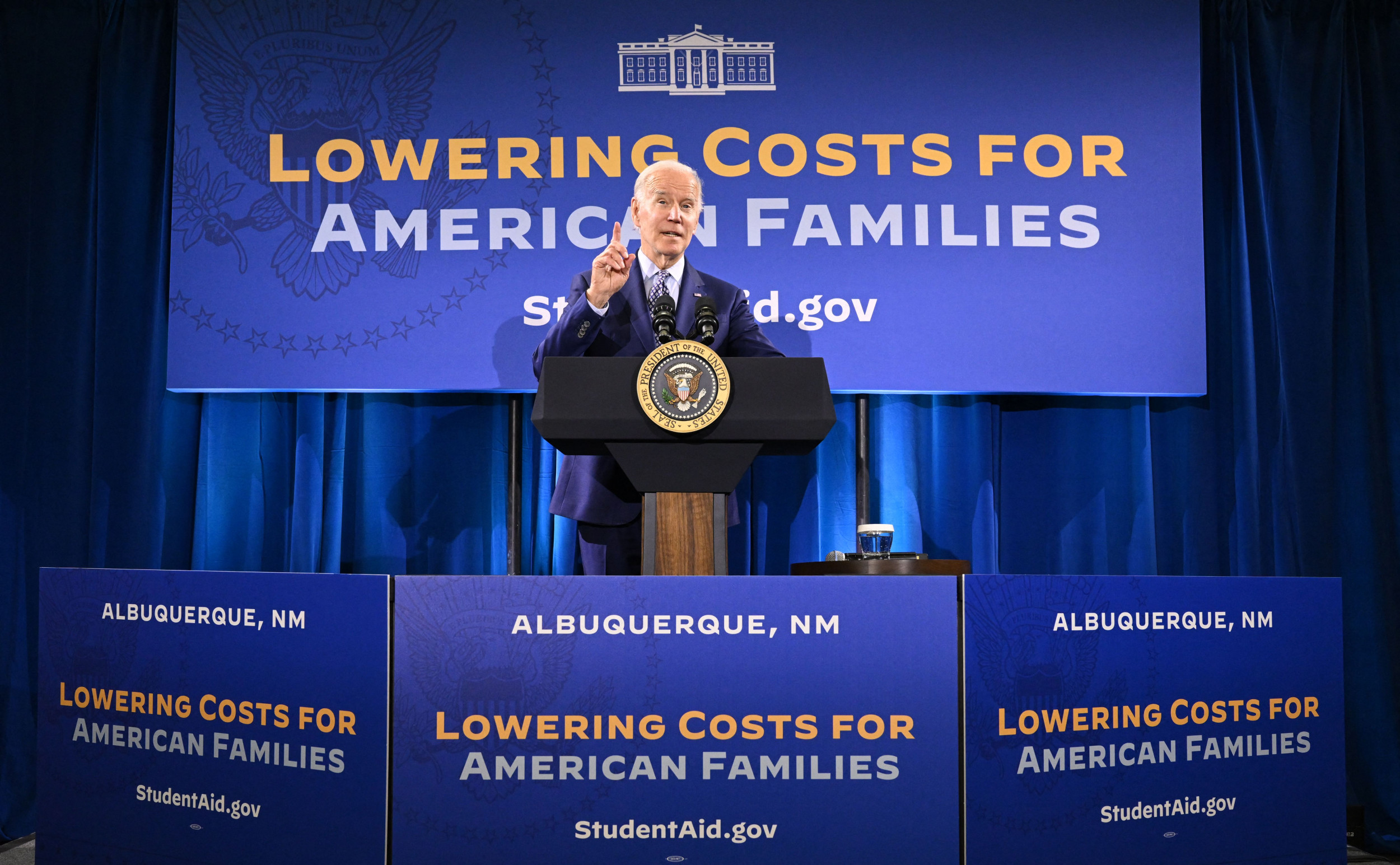Members of the Jewish and LGBTQ communities are being advised to be careful in some Arab neighborhoods in Berlin the city's police chief said.
Chief Barbara Slowik told the Berliner Zeitung daily newspaper that the city does not have specific "no-go zones" for people, but some areas are unsafe for members of the Jewish and LGBTQ communities. There has been a rise of antisemitic incidents in the German capital since the October 7, 2023, Hamas attack on Israel. A group of schoolchildren recently was attacked in the city.
"There are no so-called no-go areas, meaning areas that are too dangerous to enter," Slowik said. "However, there are areas, and we must be honest at this stage, where I would advise people who wear a kippah or are openly homosexual or lesbians to be more attentive."
Newsweek reached out to the Berlin mayor's office on Tuesday for comment.

Slowik said she did not want to defame a particular group "as perpetrators," but she did recognize that there are "certain neighborhoods."
"There are, unfortunately, neighborhoods in Berlin with a majority of residents from Arab backgrounds where there is open sympathy for terrorist organizations and very blatant antisemitism," Slowik said.
On October 7, 2023, Hamas and other Palestinian nationalist militant groups launched a coordinated invasion from the Gaza Strip into Israel. The attack killed 1,200 people and about 250 were kidnapped, with dozens still held in Gaza. Israel's subsequent military campaign has led to more than 43,000 deaths, according to Gaza health officials, who report that more than half of those killed are women and children, though their tally does not differentiate between civilians and combatants.
Since the attack, there has been a rise of antisemitism globally. Last week, hundreds of "wanted" posters targeted teachers and staff at the University of Rochester in New York.

Tensions have risen in Europe as well. Last week, Israeli soccer fans were attacked in the streets of Amsterdam. Maccabi Tel Aviv fans pulled down Palestinian flags and vandalized taxis. They were then targeted by rioters who attacked Israeli fans, injuring several and sending five to the hospital. On social media, people discussed a "hunt on Jews."
In Germany, a group of Jewish schoolchildren was attacked by a pro-Palestinian group with knives and sticks last week. The 13- to 16-year-old Jewish youth soccer team member were "hunted down" by Arab children after a game in the Neukölln neighborhood, which is known for its large Arab and Turkish population. Witnesses reported that the attackers had shouted "Free Palestine" along with antisemitic slurs.
Earlier this month, a fan of the Makkabi Berlin sports club soccer team was hospitalized after being punched in the face by a man who asked if he was Jewish.
"This understandably increases the fear within the community of becoming a target of an attack," Slowik said. "That fear and concern remain, I can understand."
Since the 2023 attack, Berlin police have initiated more than 6,200 investigations related to antisemitism, according to the daily newspaper Süddeutsche Zeitung. A majority of the investigations include hate postings, damaged property and propaganda. Antisemitic incidents have risen by 50 percent compared to 2022.
"Of the 1,300 investigations regarding violent crimes, it is mostly about attacks or resistance against police officers at demonstrations," Slowik said.
"Fortunately, the violent crimes against Jewish people are low, but without question, every act is one too many," Slowik said. "People from the Jewish-Israeli community in Berlin perceive the total number of antisemitic crimes, which raises their fear of becoming targets of attacks."
Slowik warned that the Berlin police force is stretched thin because of daily pro-Palestinian protests and heightened security for Jewish and Israeli organizations.
"Our resources are being tested to their limits," she said.








![SOURCE SPORTS: [WATCH] Mets Capt. David Wright Gives Interesting Insight On The Honor Of His Jersey Retirement In Citi Field](https://thesource.com/wp-content/uploads/2025/01/01fs75fy836w8mp4ytwr.webp)











 English (US) ·
English (US) ·